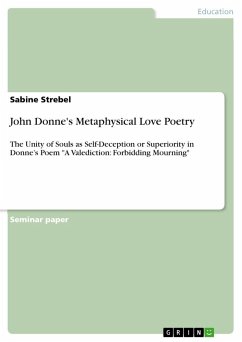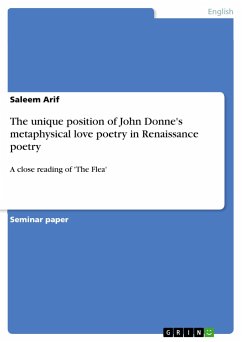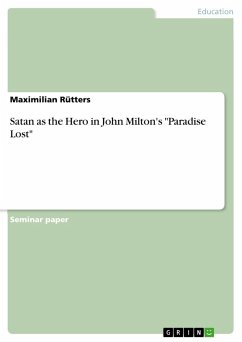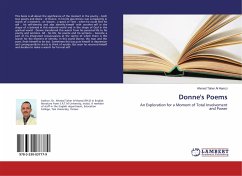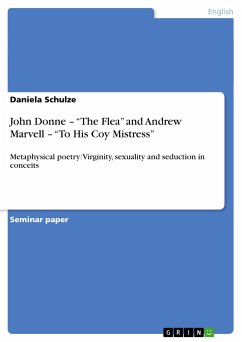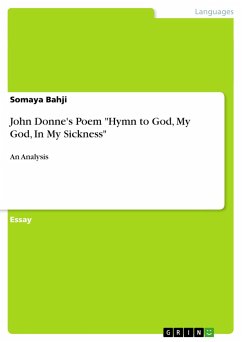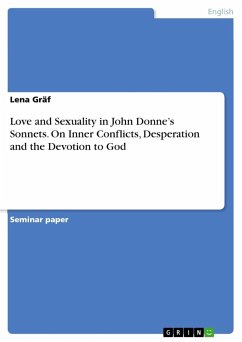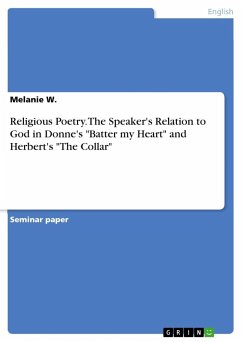Seminar paper from the year 2018 in the subject Didactics for the subject English - Literature, Works, grade: 2,0, Johannes Gutenberg University Mainz, language: English, abstract: Most people would think of Shakespeare if they were asked for the most famous poet of the Elizabethan era. He invented the "Shakespearean Sonnet" after all, which is probably the only type of Renaissance poem German students have to read during their school career. However, Shakespeare was not the only author of sonnets during this time. Someone who deserves just as much acknowledgement in this area is John Donne, who had an especially meteoric comeback in 1921 due to the publication of Eliot's essay "The Metaphysical Poets." Roland Greene, an editor for the Princeton Encyclopedia of Poetry and Poetics, shows in the encyclopedia that many scholars actually consider Donne to be one of the greatest poets in the English language. His work focused on themes of love and devotion, both the physical and spiritual kinds. The latter can be also found in his poem "A Valediction: Forbidding Mourning." In this poem, Donne describes a situation every person who has fallen in love can relate to: the lovers face an upcoming farewell. Although the poem was written around 400 years ago, it still addresses issues that can be found in several poems, songs or other stories of our time. Maybe it would be too easy to compare Donne's metaphysical love poetry to a current pop song since he elaborates this valediction with something resembling a catchy refrain: a series of four metaphysical conceits where he "unleashes all his rhetorical cleverness" as Greene calls it. What the title suggests and what also emerges upon a first reading is that the speaker wishes to forbid any mourning about the parting of the two lovers. They appear strong and well prepared since their love outshines the love of "[d]ull sublunary lover's" (13). But after further reflection, and rereading the poem, the reader can deduce that the speaker is trying to cover up his worries and fears over the parting. Baumlin raises the question of whether the last three stanzas in Donne's poem serve as a doubting promise that the speaker will return, and a plea for the woman's continued faith.
Hinweis: Dieser Artikel kann nur an eine deutsche Lieferadresse ausgeliefert werden.
Hinweis: Dieser Artikel kann nur an eine deutsche Lieferadresse ausgeliefert werden.

